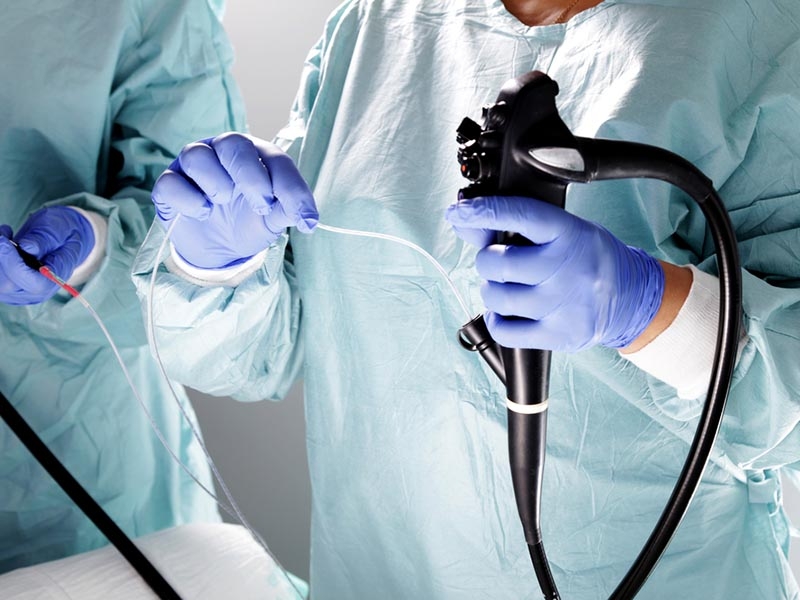Clinic Consultation in Orangeville / ON, is a premier medical facility renowned for its advanced Endoscopy exam services, catering to individuals in need of comprehensive internal diagnostic examinations. Our clinic is equipped with the latest endoscopic technology, enabling our highly skilled gastroenterologists to perform precise, minimally invasive procedures for the evaluation of gastrointestinal issues. The Endoscopy exam allows for direct visualization of the digestive tract, including the esophagus, stomach, and portions of the intestine, aiding in the diagnosis and treatment of conditions such as ulcers, gastritis, digestive tract bleeding, and polyps. At Clinic Consultation, we prioritize patient comfort and safety, ensuring a seamless experience from preparation through recovery. Our team provides detailed instructions for pre-exam preparation, including dietary restrictions, and offers personalized care throughout the procedure. For those in Orangeville / ON, seeking exceptional Endoscopy exam services, Clinic Consultation offers a combination of expert care, state-of-the-art facilities, and a commitment to patient-centered practices, making us the preferred choice for gastrointestinal health needs.
Endoscopy in Orangeville / ON

Watch our video about Endoscopy
Endoscopy in Orangeville / ON
Endoscopy is a medical procedure used to examine the interior of the body using a specialized tool called an endoscope. An endoscope is a long, flexible tube with a light and camera attached to it, allowing doctors to view images of the body's internal organs and structures on a screen. Endoscopy is commonly used to diagnose and treat various conditions affecting the digestive system, including the esophagus, stomach, and intestines, as well as other areas such as the lungs and urinary tract.
Endoscopy is minimally invasive, meaning it does not require large incisions, and it allows doctors to closely inspect organs and tissues to identify issues like ulcers, inflammation, tumors, or blockages. In many cases, endoscopy is used not only for diagnosis but also for performing certain treatments or taking tissue samples (biopsies).
Types of Endoscopy
Upper Endoscopy (EGD)
Upper endoscopy, or esophagogastroduodenoscopy (EGD), is a procedure that examines the upper part of the digestive tract, including the esophagus, stomach, and duodenum (the first part of the small intestine). This type of endoscopy is often used to investigate symptoms such as persistent heartburn, nausea, vomiting, abdominal pain, or difficulty swallowing. It is also used to diagnose conditions like gastroesophageal reflux disease (GERD), peptic ulcers, and esophageal cancer.
During the procedure, the doctor inserts the endoscope through the mouth and gently guides it down the esophagus to the stomach and duodenum. The patient is usually sedated to ensure comfort, and the entire procedure typically takes about 15 to 30 minutes. In addition to diagnosing issues, upper endoscopy can be used to perform treatments such as removing polyps, stopping bleeding, or dilating (widening) a narrowed esophagus. Recovery is quick, and most patients can resume normal activities the same day.
Colonoscopy
A colonoscopy is a type of endoscopy that examines the lower digestive tract, specifically the colon and rectum. This procedure is commonly used to screen for colorectal cancer, investigate causes of chronic diarrhea, constipation, or rectal bleeding, and diagnose conditions such as diverticulosis or inflammatory bowel disease (IBD). Colonoscopy is one of the most effective tools for detecting precancerous polyps, which can be removed during the procedure to prevent them from developing into cancer.
Before the colonoscopy, patients must follow a special diet and take a bowel-cleansing solution to ensure the colon is empty. During the procedure, the doctor inserts the endoscope through the rectum and examines the entire colon. Like upper endoscopy, patients are sedated, and the procedure takes around 30 to 60 minutes. Recovery is generally quick, though some patients may experience mild cramping or bloating afterward.
Advantages of Endoscopy
Endoscopy offers several advantages over traditional surgical methods for diagnosing and treating conditions:
- Minimally invasive: Endoscopy allows doctors to see inside the body without large incisions, reducing recovery time and lowering the risk of complications.
- Accurate diagnosis: Endoscopy provides high-quality images that help doctors accurately diagnose issues like ulcers, tumors, and blockages, often during the same procedure.
- Therapeutic capabilities: In addition to diagnosis, many endoscopic procedures allow doctors to perform treatments, such as removing polyps, controlling bleeding, or taking biopsies.
Most endoscopic procedures are performed on an outpatient basis, meaning patients can go home the same day. The recovery time is short, and there are typically fewer risks than with more invasive surgeries.
Frequently Asked Questions (FAQ)
1. Is an endoscopy painful?
No, most patients do not experience pain during an endoscopy. Sedation is used to ensure comfort, and many patients are relaxed or even asleep during the procedure.
2. How long does it take to recover from an endoscopy?
Recovery is generally quick. Most patients can return to normal activities within a few hours after the procedure, although it's recommended to avoid driving or making important decisions for the rest of the day due to the effects of sedation.
3. What are the risks of endoscopy?
Endoscopy is generally very safe. However, like any medical procedure, there are some risks, including bleeding, infection, or perforation of the organ being examined. Your doctor will discuss any risks with you before the procedure.
4. How often should I have a colonoscopy?
Colonoscopy screenings are recommended every 10 years for most adults starting at age 50, or earlier if you have a family history of colorectal cancer or other risk factors. Your doctor will provide guidance based on your health needs.
Endoscopy Services at Clinic Consultation
At Clinic Consultation, our experienced specialists provide a full range of endoscopic procedures, including upper endoscopy and colonoscopy. Whether you're seeking diagnosis for digestive issues or preventive care like colorectal cancer screening, our team offers expert care in a comfortable and safe environment.
Book an appointment today to discuss your endoscopy needs with our skilled team at Clinic Consultation.
Click the button below to schedule your appointment online.